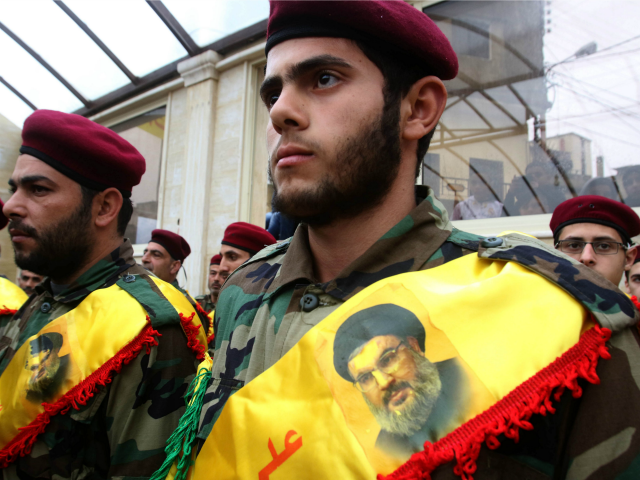A Lebanese columnist recently wrote that Hezbollah’s threats against Israel may pose a greater risk to Lebanon than they do to the Jewish state.
In a column published in Arab News in Saudi Arabia, columnist Diana Moukalled noted the recent escalation in rhetoric coming from Hezbollah Secretary-General Hassan Nasrallah.
The Hezbollah leader, who has barely been seen in public since the 2006 war with Israel, has in recent months threatened to launch rockets against Israel’s top secret facility on the outskirts of the southern town of Dimona, believed to include a nuclear reactor, as well as against a huge ammonia container in the northern metropolis of Haifa, Israel’s third most populous city.
A recent translation of Moukalled’s column was published on April 3 by the Middle East Media Research Institute. The Arabic column was published on February 26.
In the piece, titled “Does Hezbollah threaten Israel or us?” Moukalled opined that Nasrallah’s threats are intended to mask the huge losses the terror group has suffered in the Syrian civil war.
Israeli intelligence estimates say the Shi’ite militia, which has rallied behind Syrian President Bashar Assad, has sustained at least 1,000 deaths on the battlefield.
“Israel has reacted to recent statements by Hezbollah leader Hassan Nasrallah with a mixture of mockery and cynicism, as he said Hezbollah was ready to bomb the Dimona nuclear reactor or ammonia tanks,” Moukalled wrote. “Israeli websites reported military discussions indicating that Israel believes Hezbollah is facing a dilemma over aid and funds due to the fighting in Syria.”
In her column, Moukalled also noted that both targets – the Dimona facility and the ammonia tank – are in close proximity to both Jewish and Arab Israeli civilians.
“In the past, Israel dealt more seriously and carefully with Hezbollah threats and movements, but this has seemingly changed. I am in no way praising Israel, an occupying racist state, or minimizing its danger as an aggressor. Rather, this is an attempt to understand the whirlwind of rhetoric recently launched by Nasrallah, which affects Lebanese, Palestinians and others living mere kilometers from the Dimona reactor,” she wrote.
Moukalled warned that if the Iranian patrons of Hezbollah decide to go on “adventures,” including against Israel, at the expense of the Lebanese people, the result may be catastrophic for Lebanon.
“Everyone, primarily Hezbollah, knows that the results of any war or military action against Israel will be catastrophic. Nasrallah may have learned this lesson, since the southern front with Israel has been calm since the end of the last war 11 years ago,” she wrote.
“But the situation is not as it was during the 2006 war, as Israel says its response will be massive against Hezbollah and Lebanon if Hezbollah takes military action against it,” she added.
Moukalled wrote that “this threat includes Israel’s preparedness to target all Lebanese territory. Lebanese President Michel Aoun’s comments that Hezbollah’s weapons complement the role of the army serve as a pretext for Israel to target the army as well.”
In recent months, Israeli military officials have indicated that if Hezbollah were to test the Jewish state’s resolve, the IDF would respond even more devastatingly than in 2006.
In the 2006 war, Israel destroyed almost the entire infrastructure of roads and bridges in the first few days of the war.
Since the beginning of the Syrian civil war, the Jewish state has bombed weapons convoys headed for Lebanon so long as it caught them on Syrian territory, thus denying Hezbollah a casus belli to renew attacks.
Israeli intelligence has been keeping a close tab on the Shi’ite group’s rearmament since the end of the Second Lebanon War.

COMMENTS
Please let us know if you're having issues with commenting.